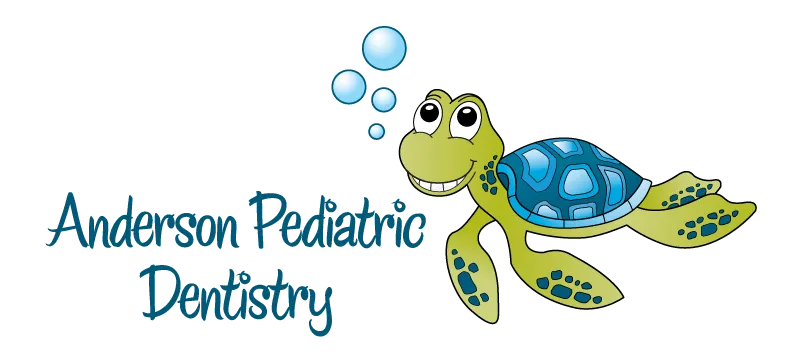The Truth About Teething and How to Survive
posted: Mar. 13, 2018.
It’s one of those major milestones that we can’t wait to celebrate with our baby. We wait months for it. And then it starts and we can’t wait for it to be over. Yes, I am talking about teething! Whether it’s the first tooth or the eighth, teething can be awful, for both the baby and the parents. From the constant drool to the fussiness and even the lack of sleep, teething can be painful- both physically and emotionally.
While every child is different, most babies will begin cutting their first tooth between 4 to 7 months and will have a full mouth of teeth by 2 to 3 years of age. What does this mean? You guessed it? The teething fun can last for years! The best part is that teething is different for each child, and even for each tooth. Your child might get his first tooth without any symptoms, but cry and drool for days when his molars come in. Or, your baby might drool and fuss for weeks when the first tooth arrives, then have no further discomfort when future teeth arrive.
For my oldest daughter, she screamed and fussed all morning long, then seemed to stop immediately after her first tooth came through. She never had any issues with any of the other teeth. With our son, he drooled nonstop for a month before his first tooth came through. And our youngest daughter wouldn’t eat solid food for nearly two days before her bottom molar came in.
Teething has many symptoms- excessive drooling, fussiness, lack of appetite. There are also some symptoms that many attribute to teething, but there is no medical evidence to support it.
For example, fevers. My wife swears that each of our children had a mild fever when teething. So, did the teething cause the fever or was it just a coincidence- three times? There are mixed opinions on this. Many pediatricians disagree that it’s related to teething and that the fever is probably due to some other infection or illness going on at the same time. Remember, at this age, a baby’s passive immunity due to maternal antibodies wanes and exposure to a wide variety of childhood illnesses occurs, often causing mild fever. Regardless, if your child experiences any fever over 101.4 while teething, you need to visit your pediatrician to make sure there is not an underlying illness causing it.
Diarrhea. While there is no scientific evidence linking loose stools and teething, this too, makes some sense. Many babies tend to have excessive drool when they are teething. For some, this goes on for days and even weeks. Some doctors believe that the excessive amounts of saliva can, in fact, be a factor in your child’s loose stools. However, many infants at this age are also starting solid foods and their diet is changing, which can also lead to diarrhea. In any case, if it seems excessive or if you see any blood in the stools, contact your pediatrician, as this is likely due to something other than teething.
So, what’s a parent to do? How can you save your baby from pain and yourself from losing your sanity? There are many teething-pain relievers that can soothe your baby's sore gums safely. Here are a few worth trying:
Chew Toys- plastic and rubber toys are great for soothing aching gums, especially when chilled. Choose the solid teething toys over the fluid filled ones and do not freeze them, as this can be too hard for baby’s gums.
Cold- Damp washcloths can be twisted and frozen. Tie one end in a knot to give baby something to gnaw on. (This also eliminates any exposure to chemicals in plastic teething toys.)
Massage- A light, gentle rub or massage might give your little one a lot of relief. Remember to wash your hands. Also, babies like to gnaw on your clean fingers, too. Remember, they don’t have teeth yet so it won’t hurt.
Medicine- When your baby is having a really tough time, ask your pediatrician about giving a dose of acetaminophen (Tylenol).
Note: Numbing gels or creams that contain benzocaine are not recommended for infants.
Essential Oils and Natural Remedies- While no scientific evidence exists to support the use of essential oils, many parents stand by their effectiveness and feel comforted by their natural ingredients. Whether using manufactured teething treatments or essential oils, make sure to follow guidelines on dilution and use sparingly. Before six months, stick to lavender and chamomile.
What NOT to do.
There are many tried and true methods for easing teething pain. However, the one thing we advise parents against is putting any type of teething necklace around your child’s neck, including the popular Amber necklaces. Without going too deep into this issue, there is currently no scientific data to support the claims that these necklaces ease teething pain or drooling. The risk of choking and strangulation is far to high to encourage the use of wearing these necklaces. In addition, many parents are purchasing fake necklaces that are not even made from real Baltic Amber. For more information, I encourage you to visit some of the websites listed below to see the research and data.
Remember, teething troubles won’t last forever and it leads to an exciting milestone! When your child has a mouthful of teeth and a beautiful smile, it will all be worth it!
https://well.blogs.nytimes.com/2013/10/11/amber-teething-necklaces-pose-choking-hazard/
https://www.parenting.com/article/the-truth-about-teething-21332984
